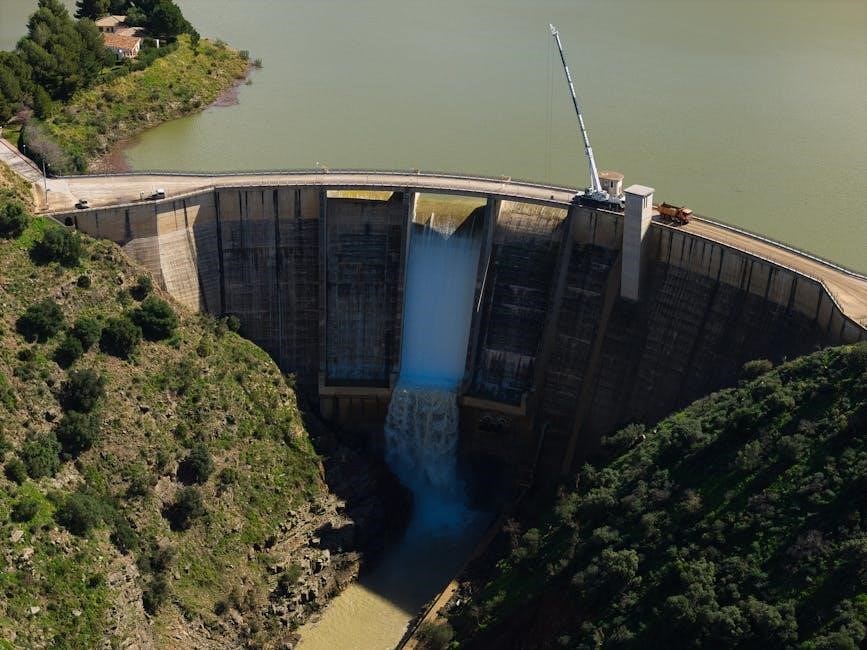Overview of Energy Efficiency
Energy efficiency is a key aspect of water heater energy guide, focusing on reducing energy consumption and costs. The guide provides an overview of energy-efficient solutions, including tankless water heaters and heat pump technology. These solutions offer significant energy savings and environmental benefits. Energy efficiency is achieved through advanced technologies and designs, such as insulation and smart sensors. The guide also discusses the importance of proper installation, maintenance, and operation of water heaters to ensure optimal energy efficiency. By choosing energy-efficient water heaters, households and businesses can reduce their energy bills and contribute to a sustainable future. The guide offers valuable information and tips to help consumers make informed decisions about their water heater energy needs and options. Energy efficiency is a critical consideration in the selection and use of water heaters.

Types of Water Heaters
Various water heaters exist, including tankless, tank, and hybrid models available daily.
Tankless Water Heaters
Tankless water heaters are known for their energy efficiency, providing hot water only when needed, which can help reduce energy consumption and lower utility bills. They have a longer lifespan compared to traditional tank water heaters and take up less space, making them ideal for smaller homes or apartments. Tankless water heaters also offer a continuous supply of hot water, as they heat water as it flows through the unit, rather than storing it in a tank. This can be especially beneficial for large families or households with high hot water demands. Overall, tankless water heaters are a great option for those looking to save energy and money while still enjoying a steady supply of hot water. They are a popular choice among homeowners and businesses alike, and their popularity continues to grow.

Operating Modes of Water Heaters
Water heaters have different operating modes, including heat pump-only mode and energy saver modes daily for homes and businesses.
Heat Pump Technology
Heat pump technology has become increasingly popular for water heating, offering a highly efficient and environmentally friendly solution. This technology uses a refrigerant to transfer heat from one location to another, providing a significant reduction in energy consumption. The heat pump water heater has several advantages, including lower operating costs and a reduced carbon footprint. Additionally, heat pump water heaters are known for their reliability and durability, making them a great option for homeowners and businesses. With the ability to provide both hot and cold water, heat pump technology is a versatile solution for a variety of applications, including residential and commercial use, and is expected to continue to grow in popularity in the coming years with its energy efficiency benefits.

Energy Savings and Rewards
Energy savings and rewards programs offer incentives for using energy-efficient water heaters daily with benefits.
Eligibility Requirements and Reward Amounts
Eligibility requirements and reward amounts for energy-efficient water heaters vary by program and location, with some offering rebates and others providing tax credits.
The reward amounts are typically based on the energy efficiency of the water heater, with higher efficiency models qualifying for larger rewards.
Programs may also have specific eligibility requirements, such as income limits or requirements for professional installation.
It is essential to review the eligibility requirements and reward amounts for each program to determine which ones you may be eligible for and to understand the benefits of participating.
By taking advantage of these programs, you can save money on your energy bills and contribute to a more sustainable future.
Energy-efficient water heaters are a great way to reduce your energy consumption and lower your utility bills, and with the right incentives, they can be a cost-effective option.
Comparison of Water Heaters
Comparing different water heater models and brands helps consumers make informed decisions daily always.
Conventional Storage Tank and Indirect Water Heaters
Conventional storage tank water heaters are the most common type of water heater, they have a tank that stores hot water and is constantly being heated. Indirect water heaters, on the other hand, use the heat from a boiler or furnace to heat the water, they are often more energy efficient than conventional storage tank water heaters. The conventional storage tank water heaters have a limited supply of hot water, once the tank is empty, it needs to be refilled and reheated, this can be a disadvantage. Indirect water heaters are a good option for homes that already have a boiler or furnace, they can provide a steady supply of hot water and are often more cost effective. They are also more environmentally friendly than conventional storage tank water heaters. Overall they are a good option for many homes.
Modernization Projects and Savings
Modernization projects offer significant energy and cost savings through efficient water heater systems and technologies daily.
Savings Achieved by Modernization Projects
Savings achieved by modernization projects are substantial, with reductions in energy consumption and costs.
The implementation of efficient water heater systems and technologies leads to significant savings.
These savings can be achieved through the installation of new water heaters, such as tankless or heat pump water heaters.
Additionally, modernization projects can also involve the retrofitting of existing water heaters to make them more energy efficient.
The savings achieved by these projects can be measured in terms of reduced energy consumption, lower energy bills, and a decreased carbon footprint.
Overall, modernization projects offer a cost-effective and environmentally friendly solution for reducing energy consumption and costs associated with water heating.
The benefits of these projects can be realized by homeowners, businesses, and industries, making them a worthwhile investment.
These projects can be implemented in various settings, including residential and commercial buildings.

Best Practices for Energy Efficiency
Optimizing water heater performance through regular maintenance and inspections daily always.
Operation Guide and Tips
An operation guide is essential for water heater users to understand how to use their devices efficiently. The guide provides tips on how to maintain the water heater, including checking the temperature and pressure relief valve. It also offers advice on how to optimize energy consumption, such as installing a timer or thermostat. Additionally, the guide includes troubleshooting tips to help users identify and fix common issues. By following the operation guide and tips, users can ensure their water heater is running safely and efficiently. This can help reduce energy bills and prolong the lifespan of the device. Overall, an operation guide is a valuable resource for anyone using a water heater. It provides the necessary information to use the device correctly and make the most of its features and benefits; Proper use is key to efficiency.
